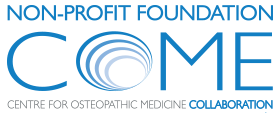Osteopathic manipulative treatment in cardiac surgery patients. A systematic review
| By Patrick van Dun | 0 Comments
Osteopathic manipulative treatment (OMT) in surgical patients aims at reducing postoperative pain and enhancing recovery. The effects of OMT have not been extensively studied in cardiac surgery patients, mostly owing to the fact that a limited number of osteopathic physicians are trained in thoracic surgery … ABSTRACT







